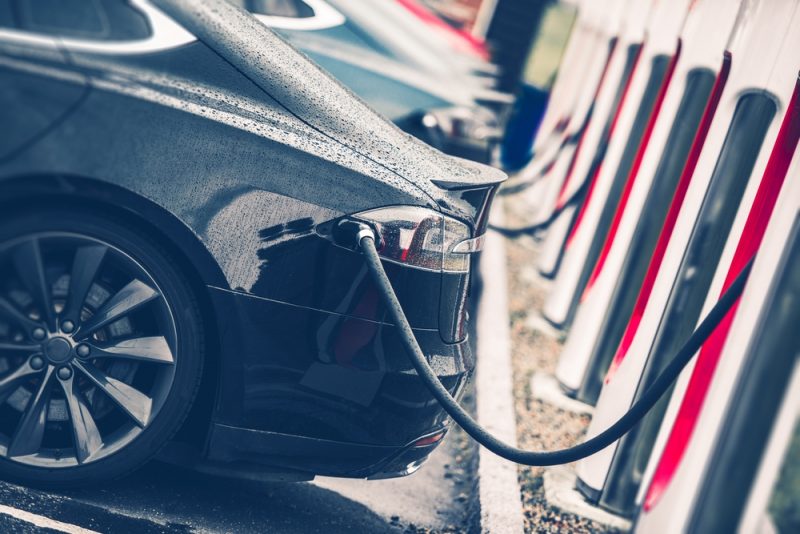There were reportedly over 4,000 new registrations per months throughout 2017, thus it is evident that the demand for electric vehicles is increasing. Evidence shows that only 3,500 electric vehicles were registered throughout the whole of 2013, suggesting the industry has witnessed significant growth over the past few years – with the popularity growth attributed to the developments in the industry that are slowly but surely overcoming the initial setbacks of electric vehicles.
Pressure is now being put on cities to install enough charging points in order to accommodate the number of electric vehicles being bought across the country. Therefore, workers across the country are currently working effortlessly to install them, whilst manufacturers work to improve battery life and mileage range. Also set to transform the process is Nissan’s one pedal driving system. The new Leaf is said to be able to travel around 50% further on one single charge than previous models. The Nissan Leaf is already branded as one of the most popular all-electric motors with over 283,000 sold since the model launched in 2010 – only coming behind the Mitsubishi Outlander PHEV. The new updates to the Leaf could push it up to the top spot, due to its appealing features such as being able to travel further between charges.
Nissan’s launch of the one pedal driving system is reportedly set to transform the electric vehicle industry as well as the driving process. The new system allows drivers at just a touch of a button to turn the accelerator into an e-pedal which can then function to start, accelerate, brake and stop the vehicle. Whilst drivers can still choose to operate their vehicle with a separate accelerator and brake, the system, if used, will also provide added energy efficiency gains.
VW dealership, Vindis have spent time researching the drastic effects that the rapid developments are having on the industry across the UK.
Accommodating the demand
There is little evidence that the demand for electric vehicles will be slowing down anytime soon, thus signifying the importance for the necessary updates across the country to be made. Recent results showed that by May 2017, there were more than 4,300 charging locations, with 6,700 charging devices and 12,500 connectors. Also, if we are to overcome the ongoing headache that is a full battery charging time of 8 hours, we will need a heavy influx of rapid charging points which can charge up to 80% of an electric battery in just 30 minutes, as opposed to slower charge points. Thanks to a multimillion pound deal with ChargePoint back in May 2017, InstaVolt are installing at least 3,000 rapid charging points across fuel station forecourts across the UK.
The National Grid has reported that peak demand for electricity could increase by 50%, if and when the nation switches to electric vehicles – which could be sooner than we think now that a new pan-European EV charging network has been announced too. In order to facilitate this effectively, new infrastructure will need to be built across the country in order to power the charging points. IONITY, set up by the BMW Group, Daimler, Ford, and the VW Group with Audi and Porsche, launched the network early November 2017, and plans to work on 20 ultra-rapid charging points has already begun as they target for 400 points across Europe by 2020. 2018 is forecast to see the network expand across more than 100 locations with the intentions of making long distance EV travel easier.
Importance of future changes
More and more companies are now offering rapid charging points, which take up to 30 mins to recharge – however, new research, as reported on by the Express, suggests a solution to this problem. Researchers claim they could have developed an ‘instantly rechargeable’ method that recharges an electric battery in the same time as it would take to fill a gas tank – a solution to the biggest put off that the industry has experienced. The new method is said to use fluid electrolytes to re-energise battery fluids – reducing the need for new infrastructure to support further recharging solutions.
Developments within the industry will become more noticeable throughout the next few years as the UK government seek to achieve their plans to reach their 2040 target of eliminating petrol and diesel cars. If manufacturers can truly cut down the time it takes to recharge the battery, and develop batteries that can travel further, the industry could be revolutionised and experience an influx of drivers wanting to get their hands on an EV. Watch this space!
Sources
http://www.nextgreencar.com/news/8211/ionity-ultrarapid-charging-network-launches-in-europe/
http://www.nextgreencar.com/electric-cars/statistics/
http://www.express.co.uk/life-style/cars/813735/Electric-car-charging-battery-new-technology































No Comments
Leave a comment Cancel